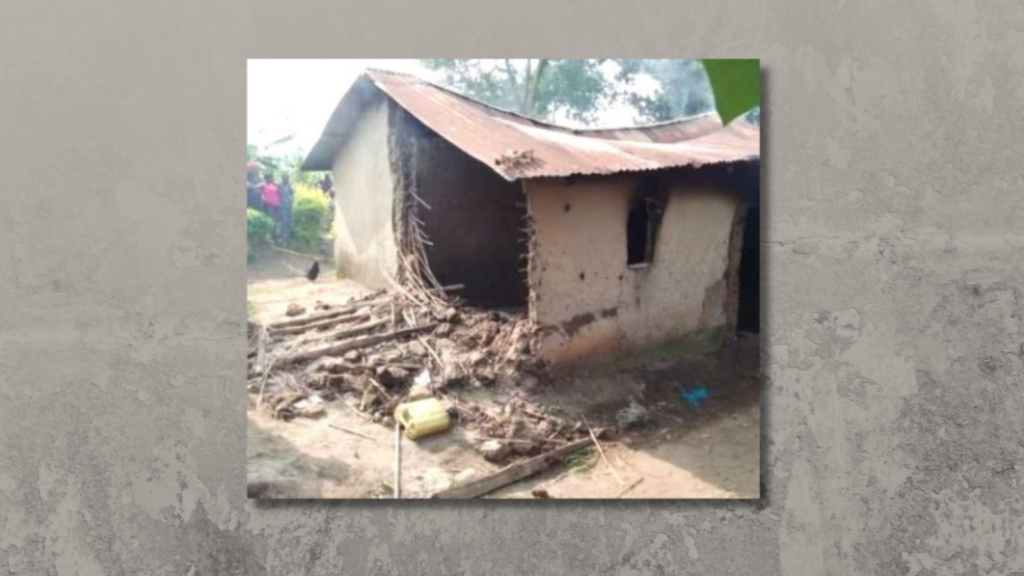By Grace Thornton
The Alabama Baptist
Persecution is on the move around the world — and gradually moving into American life — but God is at work in the midst of it, according to a panel who spoke on the topic during the Monday evening session (June 10) of the Southern Baptist Convention Pastors Conference in Birmingham.
The roundtable discussion — moderated by Timothy George, founding dean of Samford University’s Beeson Divinity School — highlighted three stories of facing persecution. George interviewed Andrew Brunson, a pastor imprisoned for two years in Turkey, and his wife, Norine; Nik and Ruth Ripken, retiring missionaries to Somalia; and Jack Phillips, a lawsuit-riddled Colorado cake shop owner, along with legal counsel Jim Campbell with the Alliance Defending Freedom (ADF).
The Brunsons shared their raw story of finding strength in the darkest of times.
“I had run after presence and intimacy with God for years, and I had tasted it,” Andrew Brunson said.
But then he ended up “in this terrible situation” — a prisoner accused of trying to overthrow the government and facing a possible life sentence — and he “did not sense God’s presence.”
“There were so many disappointments and confusion,” he said, noting that he lost 50 pounds in the first seven months. “When I was in prison, I said, ‘God, if I come out of this, I’m going to have a testimony of my weakness and your strength.’ We had taken risks, we had counted the cost for a number of things but when I saw how it broke me, I was surprised.”
As he fought to keep going, Norine Brunson encouraged him to persevere. She mobilized prayer support, looked for political and legal help and would work all week to find truths to strengthen him during their once-a-week, 35-minute visits.
“He was suicidal … and there were weeks where I would say, ‘Promise me I’m going to see you next week,’” she said.
Andrew Brunson called his wife “a lioness.”
“She had to come in every week … and deal with my questions and my doubts and bring encouragement that would keep me going for the next 167 hours after that,” he said.
He was released in October 2018 after two years in prison and said in hindsight he met God in prison in ways he never would have otherwise.
Norine Brunson said for Christians persecution is promised, but the outcome is not. She encouraged Christians to pray for the small church in Turkey, that God would strengthen and mature them to stand in the face of whatever persecution might come.
Andrew Brunson said persecution stretched him beyond what he could handle, but prayers sustained him “even when I was too week to fight.”
Nik Ripken, author of “The Insanity of God,” and his wife, Ruth — both retiring missionaries — shared that they too were stretched but God used their pain to speak into the lives of others.
As they traveled into Somalia to work, they settled refugees into camps, fed thousands of starving people and buried around 20 Somali children a day. Pain and death were rampant, and so was persecution, they said. Four of Nik Ripken’s friends were murdered in the same day.
And once when the country’s fundamentalist militant group released a hit list of 150 people associated with Christianity, three Muslims who worked with the Ripkens’ community ministry begged him to go and tell them they were good Muslims, not Christians.
So he did — they drove him to the headquarters, and he asked the militants to scratch his workers’ names from the list, giving testimony to their strong Muslim faith.
To his surprise, they agreed — and he “foolishly” kept talking.
“I turned to those guys … and said, ‘You’ve got to know there’s not 150 followers of Jesus left alive,’” he said. They responded that they knew there were only 35 or 50, but if they killed all 150, they would get everyone who was friendly to Christianity or interested in it too.
“It was tough times,” he said.
Ruth Ripken said a day came when they realized they needed to sit down with their sons and tell them that the cost of their ministry might be great.
“As a family we talked to the boys and said, you know, it could cost us everything,” she said. “We looked at our boys and said we’re willing to do this. … We chose to let them know they were part of something bigger than what we ever thought it was going to be, and it gave our boys such confidence in who Christ was. Jesus became so real to them.”
And when their middle son died at age 16 from an asthma attack, their pain made them even more relatable to the Somalis.
“We would not have been able to go to believers in persecution in the same way we were able to when we could share the story of our son and the agony we felt,” she said. “That gave us validity — our stories were just like theirs.”
Nik Ripken said one thing Somalia did for him is that he never asked, “Why me?” — instead he asked, “Why not me, God?”
Americans may not understand that kind of mindset yet in their personal lives, but persecution is slowly creeping in, George said. He told Phillips that even though he hadn’t been put in prison or faced that kind of pain, he had faced America’s growing hostility toward faith.
“We should remember that often the attack on religious freedom begins small and grows incrementally until finally that (prison-level persecution) is the result that we’re looking at,” George said.
Phillips told his story of being asked by two gay men to bake their wedding cake in 2012 — an incident that led him into a court battle that went all the way to the Supreme Court.
“They sat down at our wedding desk in our wedding area, and one of them says, ‘We’re here to look at wedding cakes,’ and the other one says, ‘It’s for our wedding.’ So I realized right away — this is not a wedding cake I can make, because it celebrates a view of marriage that’s against everything I believe in,” Phillips said.
He told the men he would serve them anything else in his store — birthday cakes, brownies, cookies, anything they wanted — but he couldn’t make a cake for a same-sex wedding.
After they left swearing at him, “20 minutes later my phone starts ringing with just hateful calls.” And as the lawsuit came and moved through the Colorado court system, state civil rights commissioner Diann Rice called religious freedom a “despicable piece of rhetoric.”
She “compared my faith to the perpetrators of the holocaust and slaveowners,” Phillips said.
That hostility toward his faith was one of the key points that turned the Supreme Court case in Phillips’ favor last summer.
Campbell said he and others at ADF are “very privileged to be able to defend people like Jack who are willing to follow Christ’s call on their lives … no matter what the government tells them … respectfully but with the fervor that God has placed in their heart.”
ADF represents persecuted Christians all over the world, and through a new opt-in program called the Church Alliance, they also represent churches facing freedom of religion questions.
Cases like Phillips’ are growing across the country, from a florist in Washington State facing a similar case to a foster and adoption agency forced to stop placing children in the State of New York because of their policy to place children with a married mother and father.
“It’s this pressure that people of faith are being faced with simply because they want to live consistent with their beliefs,” Campbell said.
To watch the full video of the roundtable, visit sbcpc.net/sermons.






Share with others: